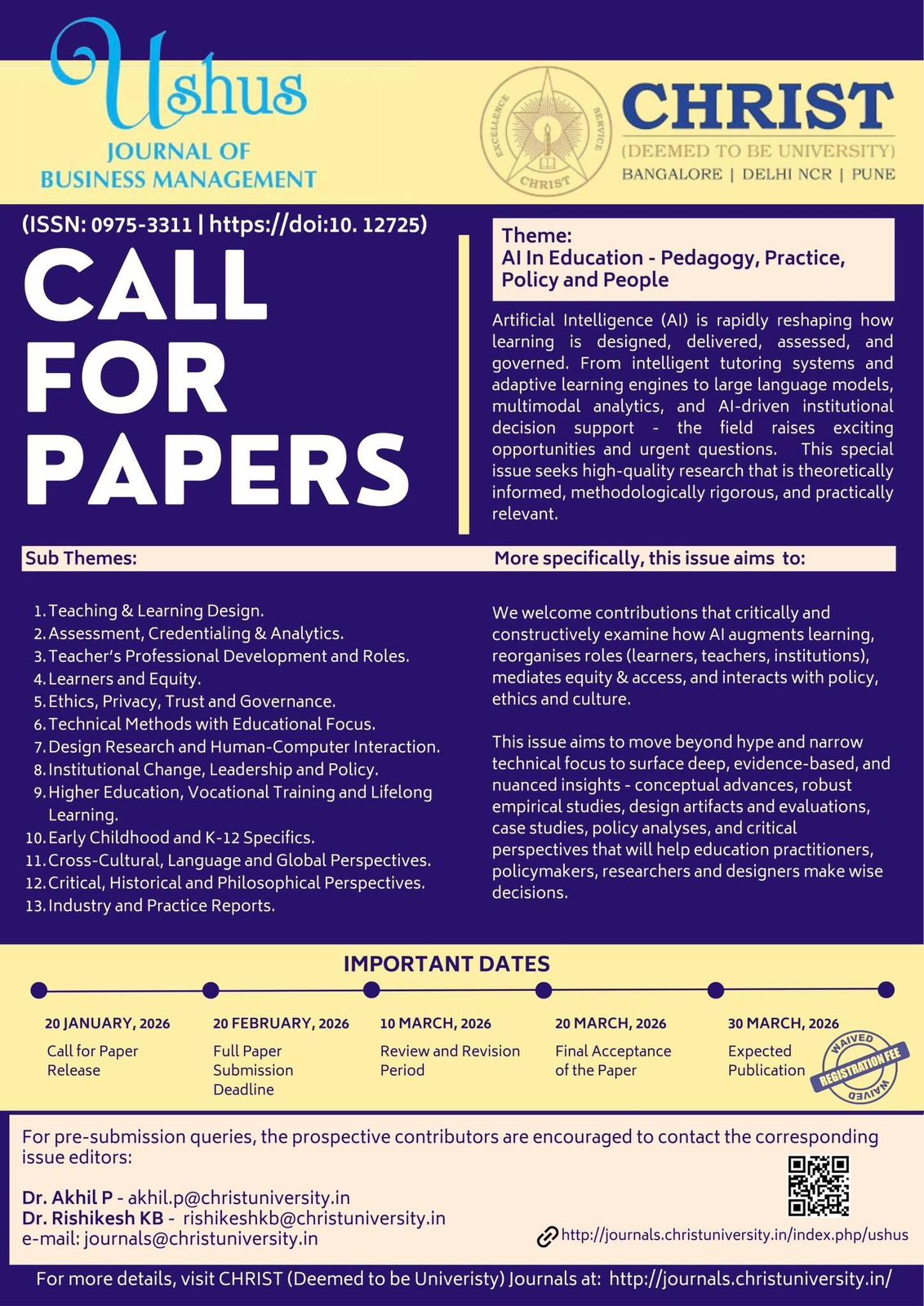Participative Management and Performance: an en Pirical Analysis of Work Organizations
DOI:
https://doi.org/10.12725/ujbm.7.5Abstract
Workers' Participation in Management (WPM) has come to be the focus of scientific and academic attention in Sociological circles with its growing importance in the context of post industrial society. WPM is viewed as a principal mechanism through which the principles of human relations approach could be incorporated into the managerial practices in the contemporary work organizations and as such, has been looked upon as a positive and humanizing intervention in the process of management. However, the nature, extent and determinants of WPM have been found to be varying significantly in different sociocultural contexts warranting culture specific and context specific empirical studies. An attempt, hence, is made in this paper to probe empirically into the extent and determinants of WPM in work organizations in an Indian setting. In all, eight work organizations from public and private sector, representing diverse types, and sizes are studied employing an organizational information schedule so devised as to elicit information required for conceptualizing organizational and contextual variables, along with three interview schedules each designed to ascertain the nature and extent of WPM, by representatives of workers, managers and unions operating as functionaries on diverse machineries of WPM. The findings seem to negate the much debated and lamented poor levels of participation by worker representatives, apathy of managerial personnel and antagonism of union leadership. The level of WPM wherever provided for, is found to be reasonably high and it varies significantly with organizational variables such as size, sector, age of the organization and extent of unionization on the one hand contextual variables such as labor force composition and ideological and political overtones of the unions operating in the plant on the other. Further, the findings indicate that the extent of WPM has significant positive implications for productivity, climate of industrial relations and profitability in particular and industrial performance in general.



